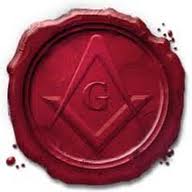Freemasonry is a unique system of morality, veiled by allegories and illustrated by symbols.It is a Universal, philanthropic, essentially philosophic, and progressive institution.
Freemasonry's goals are: The look for the truth and the study and practice of morality, virtues, and solidarity.
Masons work for humanity's spiritual and material improvement plus individual and social perfection. Its principles are the mutual tolerance, respect for others and oneself, and the absolute freedom of conscience allowing no room within its ranks for debates on politics or religion, well depicted in our motto freedom, equality, and fraternity. Its duty is to extend to all members of human kind, the fraternal bonds that unite all freemasons. The order recommends its members to spread its principles, consider working one of the essential mankind duties, either intellectual or manual.

In Freemasonry, discretion is a fundamental principle that refers to the prudence and confidentiality with which Freemasons must handle the internal affairs of the Order. It does not mean absolute secrecy but rather a commitment to confidentiality regarding the Masonic tradition's rituals, symbols, and esoteric teachings.
Discretion in Freemasonry has several key aspects:
In few words, discretion is a pillar of Freemasonry's ethics and functioning, ensuring that its teaching remains within an environment of respect, trust, and responsibility.
As an institution, Freemasonry maintains a stance of political neutrality, meaning it does not support or promote specific political parties, ideologies, or figures. However, it recognizes politics's importance in improving society and fostering liberty, equality, and fraternity.
Principles of Freemasonry Regarding Politics:
In conclusion:
Although Freemasonry is not a political organization, it does influence the development of critical thinking, humanism, and social progress. Its purpose is for each individual Freemason to act ethically and with commitment in public life without the institution taking a partisan stance.
Freemasonry has been the heir to ancient traditions, expressing itself in almost immutable forms for centuries. Doesn't Freemasonry run the risk of becoming a phenomenon of the past? Looking at it closely, we see that Freemasonry cannot be a thing of the past, given the evolution of contemporary thought that precedes it. On the philosophical and spiritual level, it is yesterday, today, and tomorrow, being "timeless" because it carries an eternal message. Its working methods refer to the physical and moral balance needed to reflect on the new challenges humanity faces due to the use of technology, climate change, and the decline of democracies, among other problems.
Education is a fundamental pillar of Freemasonry because this organization is based on improving the individual through knowledge, reflection, and moral development. Freemasonry believes that personal and social progress is only possible through the enlightenment of the mind and spirit.
Reasons why education is key in Freemasonry:
Conclusion:
Freemasonry considers education to be the path to freedom, self-knowledge, and the improvement of humanity. Therefore, it encourages its members to read, study, analyze, and debate as essential philosophical and social work tools.
Theme Danetsoft Desarrollado por Daniel Caceres